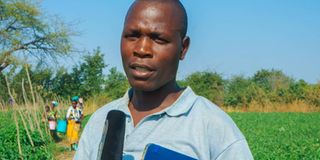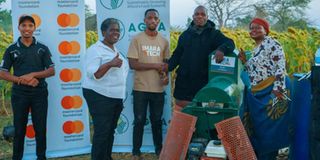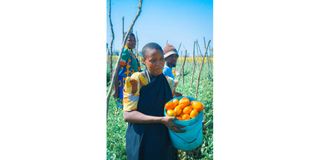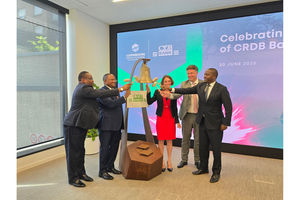When Farming Becomes a Calling: The Mwatenga farmer changing lives

What you need to know:
- Teacher Wilson now provides employment for over 100 individuals, including both permanent staff and seasonal labourers creating a ripple effect of economic opportunity throughout Mwatenga.
In Mwatenga Village, Mbarali District, the story of Teacher Wilson Kiwhele is not merely one of personal triumph — it serves as a blueprint for rural transformation, community empowerment, and youth resilience. At just 34 years old, Teacher Wilson balances two vocations: that of a secondary school teacher and a visionary farmer — a rare combination that he manages with remarkable dedication and purpose.
His journey into agriculture did not begin with capital or machinery, but rather with a pressing question: “How do I provide for my family?” As a teacher at Lupato Primary School in Mbeya, he came to the painful realisation that, despite his deep passion for education, his income was insufficient to support his growing family. And so, in 2016, he turned to farming — starting modestly with a few ridges of tomatoes in the backyard of his village home.
“I started with traditional farming methods and just tomatoes,” Teacher Wilson recalls.
“It was difficult. I had no idea where it would lead — I just knew I had to start somewhere.”

This humble beginning a small plot that barely generated a profit became the launchpad for a greater transformation. His breakthrough came when he engaged with Rikolto through the youth-centred YEFFA project, under AGRA. YEFFA is an initiative designed to equip young Tanzanians with the tools, knowledge, and networks needed to thrive in modern agriculture.
For Teacher Wilson, the support provided by YEFFA marked a turning point. He underwent agronomic training, adopted climate-smart farming practices, and gained access to solar-powered irrigation systems enabling him to transition from subsistence farming to agribusiness.
In just a few years, his land expanded from 5 acres to over 10. He diversified beyond vegetables, adding sunflowers, seasonal fruits, and in-demand crops such as tomatoes and watermelons. He implemented structured planting and harvesting schedules, treating farming as a formal business enterprise.

This growth was not merely theoretical it was tangible.
“Nowadays, I no longer chase markets. They come to me,” he says with pride.
“Buyers from Dar es Salaam’s Mbabibo Market call in to place orders. Others come directly to the farm.”
In the past week alone, Teacher Wilson harvested produce for five consecutive days, with buyers arriving in shifts to collect and transport the crops. His tomatoes and watermelons are first sent to Uyole in Mbeya before reaching consumers across Tanzania.
Yet his success isn’t measured solely in yields and acreage.
Teacher Wilson now provides employment for over 100 individuals, including both permanent staff and seasonal labourers creating a ripple effect of economic opportunity throughout Mwatenga.
He has constructed shelters for his workers, trained youth in agribusiness, and empowered fellow villagers to adopt modern farming practices.
“What I’m most proud of,” he says, “is that I’ve inspired others. Farming is no longer seen as a last resort — it’s now seen as a genuine path to building a future.”
Importantly, he has not abandoned his teaching post. Each day, he travels 134 kilometres round-trip by motorcycle to fulfil his duties at school, returning each afternoon to manage his farm a feat made possible by a team of trusted supervisors he has trained.
Ms Djalou Franco, YEFFA’s Regional Project Manager, emphasises the deeper value of the initiative:
“We don’t merely provide young farmers with funds or equipment. We offer them market access and a pathway to long-term sustainability. Wilson is a perfect example he’s creating systems and opportunities for others.”
This model of treating agriculture as a formal enterprise is gaining momentum in Mwatenga. Farmers who once relied on outdated techniques now visit Teacher Wilson’s farm for guidance. Many have adopted new crops and irrigation methods, inspired by his consistency and success.
One such individual is Ms Sekela Mwaitebele, a tomato buyer and local trader:
“Wilson has transformed this village. His methods have made our work easier as buyers. I depend on his farm for my business and I am far from the only one.”

Teacher Wilson’s story is a powerful testament to what can be achieved when determination meets the right support structures. From a few ridges of tomatoes to a thriving agribusiness serving markets across the country, his journey stands at the intersection of education, innovation, and community development.
“I’m still learning,” he says, “but I know this farming changed my life, and it’s changing my village as well.”





